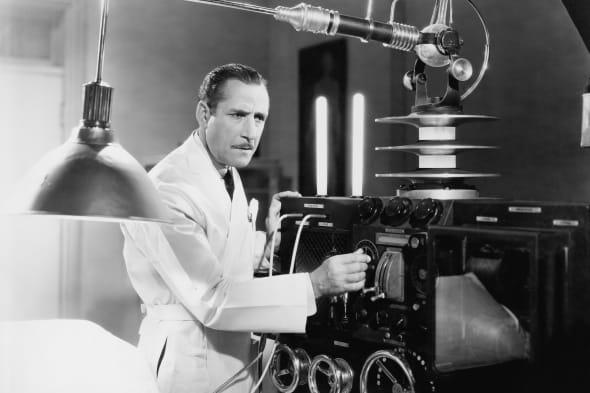Could your invention make you millions?

"Build a better mousetrap, and the world will beat a path to your door," said Ralph Waldo Emerson; but he's not known to have developed and marketed one himself. It's a long road from having a brainwave to commercialising a product, and many people simply don't have the stamina.
The British have a proud history of invention - from kettles to cats' eyes, from television to the jet engine. But according to manufacturers' association EFF, too few people know where to start.
"Inventiveness and resourcefulness are written into our collective DNA," says chief executive Terry Scuoler. "We must give greater recognition to our inventors and innovators, so as to encourage more young people to want to learn the right skills to follow in their footsteps."
If you've got a great idea for a new product or service, the first thing to do is to look at it as critically as possible before expending any time or money. Has it been done before? (A patent lawyer can tell you.) Will there really be a demand? Where might it sell, and how much for? Will it be expensive to produce?
If everything seems to stack up, you'll need to apply for a patent. It's extremely important not to talk about your invention in any detail before you do this. It's fine to say you've invented a better mousetrap; but if you give away the chemical formula for your unique poisoned cheese, you've already made your invention public and a patent won't be granted. If you need to talk to potential business partners, therefore, make sure they sign a confidentiality agreement.
Applying for a patent is not for the amateur, and you'll almost certainly need professional help. You can go it alone, with the help of a specialist patent lawyer, who will often give one consultation free of charge. The Chartered Institute of Patent Agents holds regular clinics offering half an hour's free advice.
Alternatively, you can enlist the aid of an invention promotion company - but be very, very careful.
"Some unreliable firms promise to evaluate your invention for a fee of a few hundred pounds, then tell you that your invention has great market potential," warns the government's Intellectual Property Office. "They may offer to promote your invention
to manufacturers if you pay a fee of several thousand pounds up front. Once you have paid up, they may do little or nothing for you."
There's advice on choosing a promoter here.
Bear in mind that a patent won't protect your product everywhere, forever. A UK patent has a life of 20 years and will only protect your invention in this country. For overseas protection, you'll need to go through through the international patent system, known
as the Patent Co-operation Treaty (PCT).
The patent itself will cost £280, and may take four or five years to get final approval. There's more information about the patent process here.
Don't forget that being granted a patent is in no way an endorsement of your product. The patent office will happily grant you a patent on something that's less efficient and more expensive than the competition, just so long as it's different.
And these are the issues that come to the fore when attempting to get your product to market. There are two ways of doing this: going it alone, or licensing to another company. If the latter, you'll need lawyers (again) to draw up an agreement: perhaps for a percentage of sales with a minimum monthly payment.
All this takes a lot of time - and, often, a lot of money. From the initial idea to the product hitting the shelves, we're usually talking several years - and tens of thousands of pounds. But those that manage it, there can be big rewards: here are three sources of inspiration.
James Dyson
Probably the best-known living British inventor, James Dyson brought us the Dual Cyclone bagless vacuum cleaner - as well as the Dyson Airblade hand dryer and the Air Miltiplier, a fan without external blades. He's believed to be worth around £3 billion. "Britain's great strength is its innovative, design and engineering natural ability and we're not using it," he says.
Trevor Baylis
After realising the importance of radio in spreading public health messages in Africa, Trevor Baylis set about creating a wind-up radio. In 1994, a prototype was featured on the BBC's Tomorrow's World, and investors came on board. More recently, he created the windup Eco Media player. However, after problems with enforcing patents, he says he's received very little for his inventions: most of his income now comes from giving after-dinner speeches.
Rob Law
Success didn't come easy for Rob Law - but he got there in the end. When he took his Trunki ride-on suitcase to the Dragon's Den in 2006, things looked promising at first - until Theo Paphitis broke one of the straps. He left without the £100,000 investment he wanted. Five years later, though, and a fifth of British children owned a Trunki, and the company is turning over £7 million a year.
A few inspirational invention stories for you
Loom bands have earned creator £80 million
Invention shuts off Internet until chores are done
Is this the most successful Dragon's Den reject?




